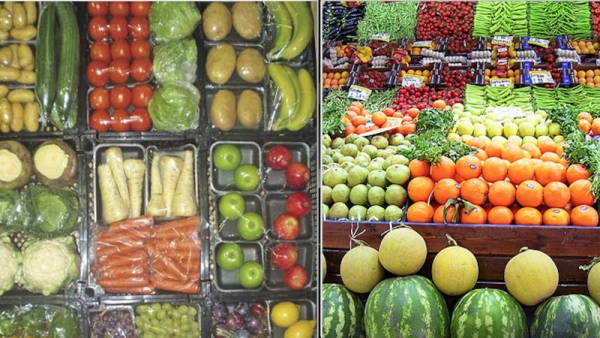How to Start a Sesame Seed Export Business in Nigeria

When the word “exporting” is mentioned to some Nigerians who are seeking means of making money or investing to yield returns, they back off! Having this mindset that it is for a particular stratum of individuals in business! The Agricultural sector has been very productive for exporters. Right now, amongst other products, sesame seeds are in high demand by exporters because of the huge profits it yields!
What are Sesame Seeds?
Sesame seeds are oil seeds that are grown/ cultivated, harvested mostly in temperate and tropical regions of the world. It is seen to be protected with a coat which is fibrous in nature. Its variety could depict its coloration, which could be brown or white. The oil content of sesame seed is high and it is between 44% – 60% of the seed. Sesame seed is mostly cultivated twice in a year. First planting is usually from April – May, and late planting, August – September. As regards harvesting Sesame seeds, it is usually done between July and August (first planting); November and December (late planting).
Globally, sesame seeds are referred to as “sesame” but the Indians call it “Till”. The botanical name is (Sesamum indicum L.) but this name would not really be of help to you in business. The most important thing is to know what the producers/sellers in regions, localities/communities call it. In western and eastern Africa, it is referred to as “benniseed” and “simsim” respectively. In Nigeria, the Northerners call it “Ridi”;in Benue state, the Tivs, Idomas and Igalas refer to it as “ishwa”,”ocha” and “igogo respectively; the Igbos call it “Isasa” and then the yorubas refer to it as “Ekuku” or “Eeku”.
Sesame seeds are supplied by countries in Africa, Latin America and Asia. There are different types and qualities of sesame seeds. White seeds are a white-to-golden colour and receive a higher market price than mixed seeds, which range from yellow to dark brown. White seeds are used primarily in natural or hulled form because of their aesthetic value, whereas mixed seeds are generally crushed into oil.
Black sesame seeds are an excellent source of magnesium and calcium and serve very well for non-dairy milk powders and other premium applications. The black seed is smaller than the white seed.
This study focuses on sesame seeds for direct use in food manufacturing and as raw or whole seed (without processing). It does not cover sesame oil.
Sesame seeds, excluding for sowing are traded under the Harmonized System (HS) code 1207 4090.
What makes Europe an interesting market for sesame seeds?
European imports of sesame seeds amounted to 155 thousand tonnes in 2016, at a value of € 216 million. Since 2012, imports suffered small fluctuations and peaked at 163 thousand tonnes in 2015. In spite of small fluctuations, the 2012-2016 periods saw an overall annual growth of around +4.0% in volume and value. Every major importing country in Europe reported an increase in this period.
Sesame seeds also enter the market in the form of processed products, which are not accounted for by these statistics.
The growth in apparent consumption of sesame seeds explains the development in imports. In 2015, nearly 122 thousand tonnes of sesame seeds were consumed in Europe, registering an annual growth of +3.0% since 2011. The main consuming countries are Germany, Netherlands, Poland, Greece and the United Kingdom. These are also the main European importers of sesame seeds.
Europe registers a very small production of sesame seeds, mainly in Greece 3.7 thousand tonnes in 2014.
Relevance to the global economy?
Actually, depending on the variety; white (food-grade) and brown (oil-grade) coloration, sesame seeds are utilized in industries to bring about essential products. Its usefulness is in;
– Food industries: the oils obtained from sesame are used in producing the canned sardines, margarines (due to its property of a long shelf life), corned beefs. Usually in bakeries, dehulled seeds are mostly preferred in production of bread, cake, burgers e.t.c. it also serve as garnishing for confectioneries etc.
– Cosmetics industries: production of soaps, bath-oils, perfumes, body and hair creams etc
– Pharmaceutical industries: for administering certain intravenous drugs, the oil serves as carriers of the drugs into the body system.
– Neutraceuticals (i.e. in natural medical applications without use of processed products): has anti-bacterial, anti-fungal and anti-viral functions that help to treat skin diseases or infections.
– Lubricants, inks, paints and insecticides.
In addition to all that has been listed, sesame seeds also serve as food for wild life. The major consuming markets in the world are the industrialized nations like Japan, USA and European countries like UK, Germany,
Netherlands etc. other countries include South Korea, India and countries in the Middle East. USA ranks fifth in the global volume of import with demands of over 50,000 tons per annum. Japan is the major importer of sesame seeds with Nigeria exporting as much as 22000 MT (metric tons) to her. Export volume from Nigeria to European countries is about 1900MT per annum. The world volume of exports and imports is about 560,000 MT yearly with an annual growth rate of 2.6%. 4% of this gross value is taken up by Nigeria and it is equivalent to N12.8 billion in foreign exchange. Nigeria is the second largest producer of sesame seed in Africa and also ranked 7th in the world.
Where in Nigeria Can I Obtain Sesame Seeds For Export?
Sesame seeds are widely grown in the Northern part of Nigeria. It is grown in states such as Benue, Kano, Jigawa, Kastina , Kogi , Nassarawa, Gombe , Kebbi, Plateau, Bauchi , Taraba, Kaduna, Cross River, Kwara, Ebonyi states, etc, with Nassarawa being the major producer. White variety sesame seeds are mostly produced in Nassarawa and Benue states. The brown varieties are produced mostly in states like Kano, Jigawa and Kastina. Local markets to source for sesame seeds include Shaba, Kantin Kwari in Kaduna state, Babadu market as well as markets between Bernin Kudu and Gwaram in Jigawa, and markets in Keffi and Laffia in Nassarawa state. There are other markets located in other states.
How Profitable would it be if I Indulge in Sesame Seed Export Business in Nigeria?
In Nigeria, the price for sesame seed ranges from N80,000 – N120,000 per MT [ 1 metric ton = 1000 kg] and can be cheaper depending on the number of tons being bought. A truckload is 30 MT which when loaded in jute bags of 80kg – 100kg can easily be driven to the seaport for export. Export price of the product depends on negotiation most times, depending on the variety of the sesame seed. But basically, the fee on board (fob) ranges from $900 – $1400 per MT. Imagine getting several truckloads of this for export and with the current dollar-naira exchange rate.








